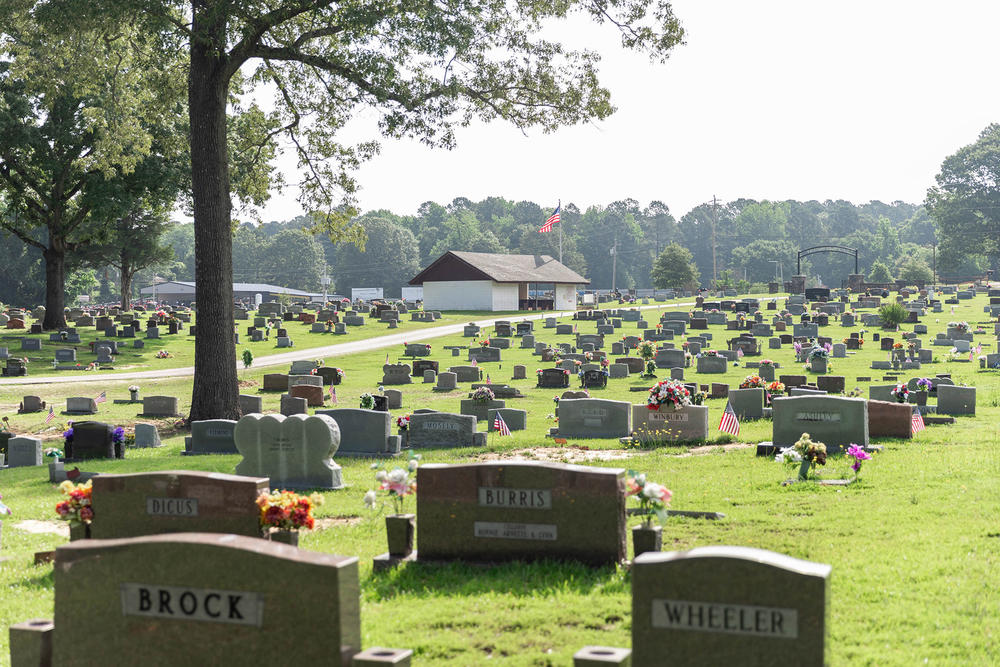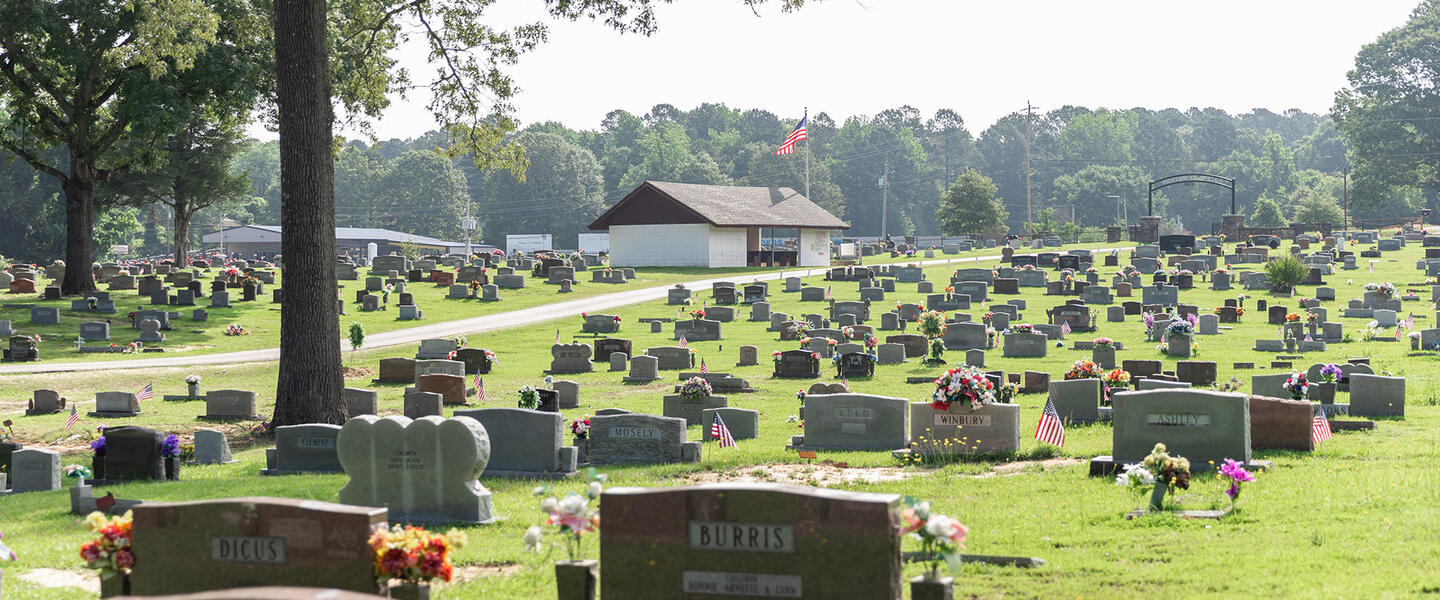
Section Branding
Header Content
Salem Cemetery
Primary Content
The way that folks in the South honor their ancestors who have passed away has some elements that folks outside the region might find curious. But as Salvation South Editor Chuck Reece explains in this week's commentary, those ways of paying tribute can sometimes help to pull communities together.

TRANSCRIPT:
Chuck Reece - Salvation South Editor: Until I met Jan Jolly, I never knew the difference between a cemetery and a graveyard. I thought the two words were synonymous, but they are not. A graveyard is a garden of repose attached to a church, a temple or another place of worship. The word “cemetery,” on the other hand, is derived from the Greek for “sleeping chamber” and refers to a scenic, nondenominational burial place located outside an urban area.
I learned these facts because Jan sent a story to Salvation South, the online magazine I edit, about the place where her people are buried in South-Central Arkansas. It’s called Salem Cemetery, and it sits in a small unincorporated community called East End.
Jan’s story really captured how much cemeteries — and graveyards, too, for that matter — mean to Southerners. We think about our loved ones buried in a community cemetery almost as if they’re … well … not even dead. In the cemetery, their memories are very much alive and remain part of the community.
Jan described this beautifully in her story as she reflected on all the chance encounters she’d had with people visiting Salem Cemetery — and the chats about family history they had shared.
“Besides attending the graveside services of relatives,” she wrote, “I had never been much for visiting Salem. But during the time of research for this essay, I found myself anticipating the required trips. Much of my anticipation was because I had begun to look forward to these random encounters with strangers. But ‘strangers’ is not the right word. No one visiting Salem Cemetery is a stranger. By virtue of stepping onto her grounds, every person is a friend, a neighbor, and somewhere in the distant past, probably kinfolk. My people.”
Jan also wrote about how Salem Cemetery still brings the people of the community together.
“East End is a community that can still rally enough volunteers to feed a horde of bereaved relatives with enough left over to fill many a Tupperware bowl,” she wrote. “East Enders promptly attend to damages to the headstones or the occasional flooding at Salem. East Enders take care of their people — both their living and their dead.”
I have often worried about the danger of honoring the past too much. I can’t seem to shake what William Faulkner wrote about Southerners and the past back in 1951: “The past is never dead. It’s not even past.” But maybe the right question to ask, when standing in a cemetery, is this: What good can I do with the time I have left that might make my people want to stand here and remember me one day?
You can read more about Salem Cemetery — and see beautiful photographs of it — at SalvationSouth.com.
Salvation South editor Chuck Reece comments on Southern culture and values in a weekly segment that airs Fridays at 7:45 a.m. during Morning Edition and 4:44 p.m. during All Things Considered on GPB Radio. You can also find them here at GPB.org/Salvation-South and please download and subscribe on your favorite podcast platform as well.







